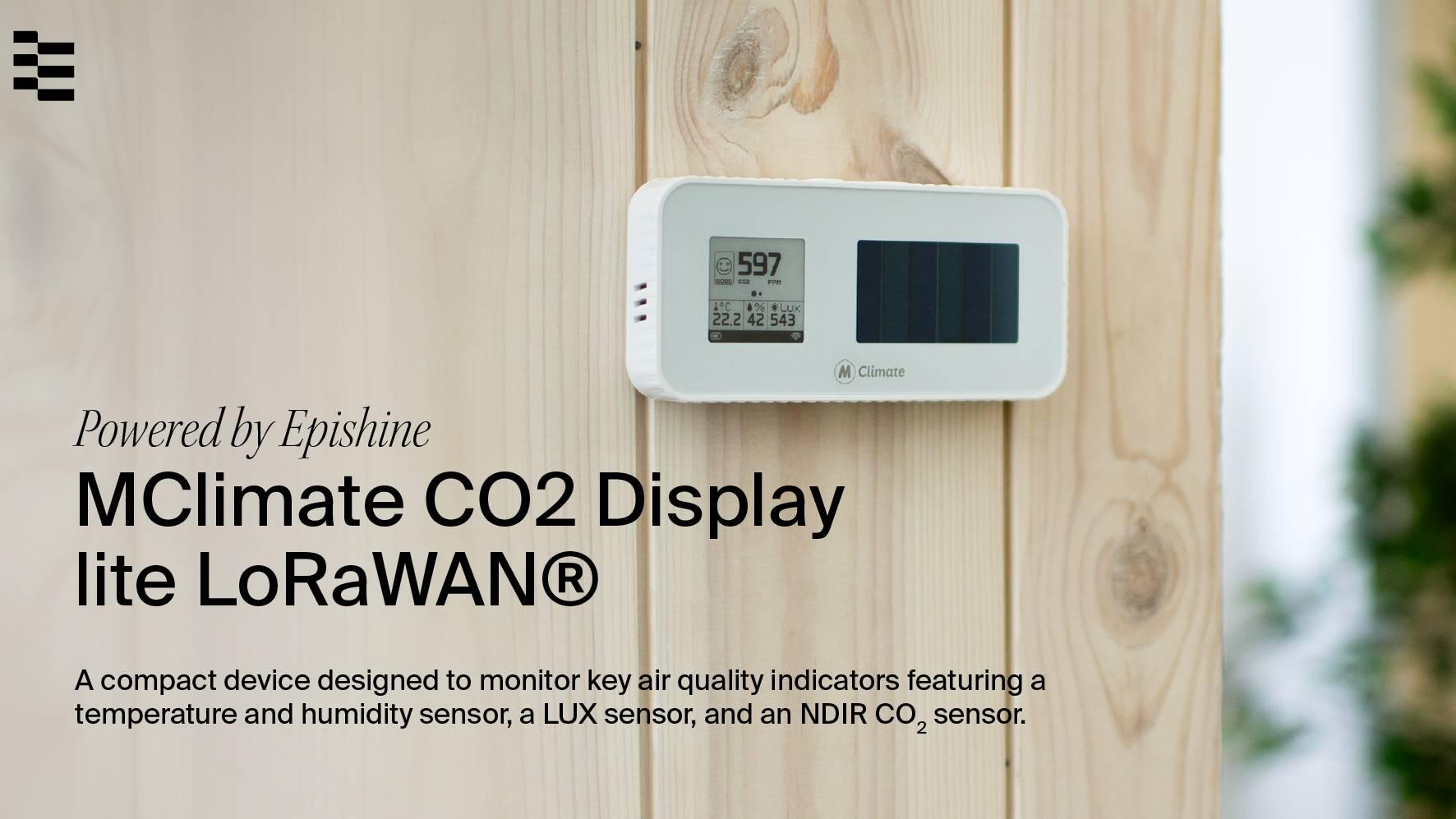MClimate’s latest innovation, the CO2 Display lite LoRaWAN—a compact, sustainable device designed to monitor key air quality indicators — is powered by Epishine. This maintenance-free solution tracks CO₂, temperature, humidity, and light levels, ensuring reliable, sustainable performance without the need for batteries.
The importance of indoor air quality monitoring
Indoor air quality is increasingly recognised as a key factor in maintaining healthy, comfortable environments, whether in classrooms, offices, or meeting rooms. Essential indicators like CO₂ concentration, temperature, and humidity levels can help ensure optimal air quality, reduce the spread of airborne pathogens, and even lower energy costs by notifying when ventilation or temperature adjustments are needed. Responding to this need, MClimate has developed the CO2 Display lite LoRaWAN – a compact and cost-effective version of its popular CO2 Display launched earlier this year. This latest model combines functionality with sustainability, thanks to Epishine’s indoor solar cell technology, eliminating the need for batteries.
The CO2 Display lite LoRaWAN features an advanced temperature and humidity sensor, a LUX sensor, and an NDIR CO2 sensor. Powered by Epishine’s indoor solar cells, the CO2 Display lite is a maintenance-free, energy-efficient solution that doesn’t rely on batteries. The indoor solar cells efficiently capture energy in low light conditions ensuring the device remains operational without frequent battery changes or additional power sources.
“We strive for the highest quality on the market, which is why we have collaborated with Epishine, a top-tier indoor solar cell producer, to develop a device that is entirely maintenance-free, environmentally friendly and sustainable,” said Violeta Mitsova, Co-Founder and CSO at MClimate.
MClimate devices powered by Epishine
Epishine’s work with MClimate now spans several products powered by indoor solar cells, including the original CO2 Display LoRaWAN and the Wireless Thermostat LoRaWAN. These light-powered devices are designed to make monitoring and managing indoor environments more sustainable, reducing both maintenance and environmental impact.


